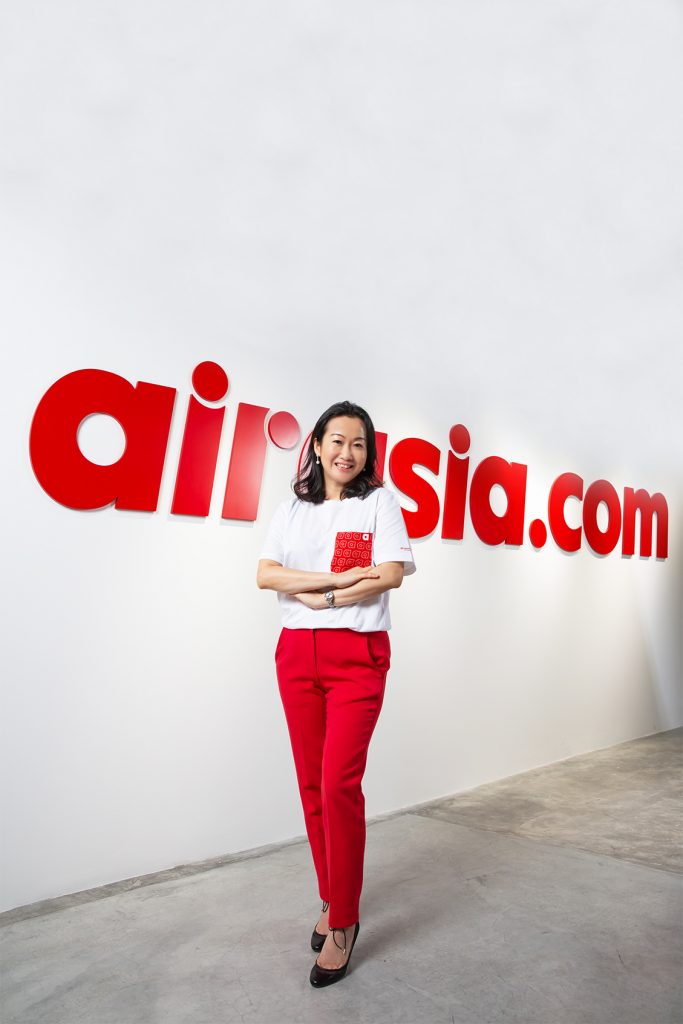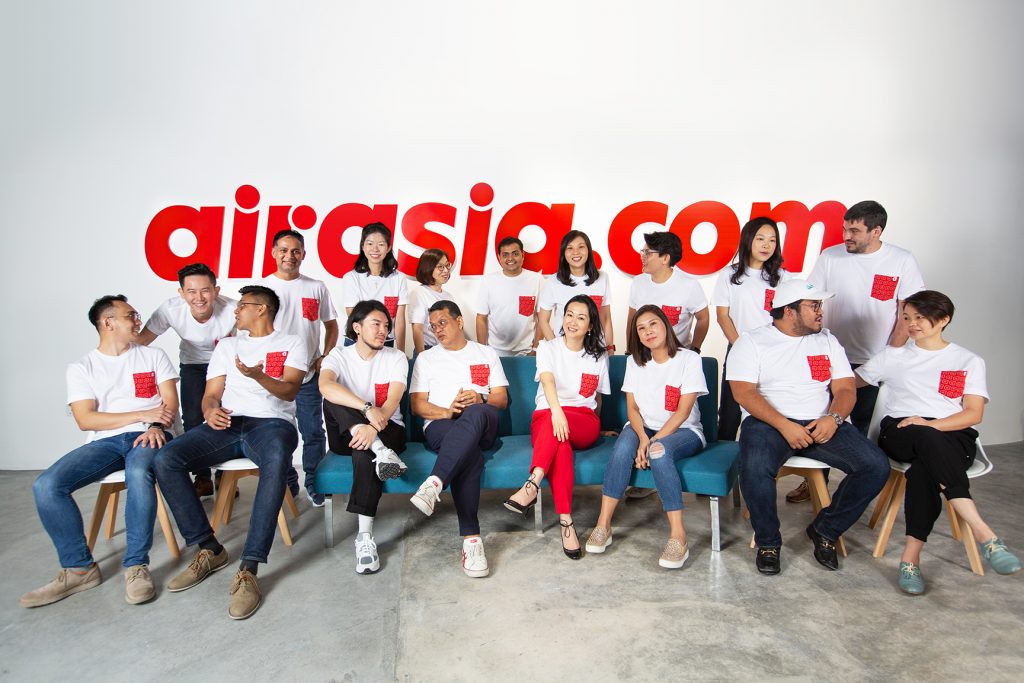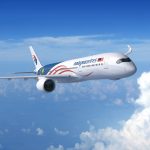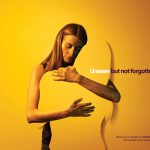As Malaysian roads became eerily empty after March 18, a less noticeable emptiness happened in the skies.
The potent combination of a global pandemic and international travel ban had a staggering impact on the multi-billion dollar airline industry.
In Malaysia, the sight of hundreds of grounded planes parked wingtip to wingtip on airport runways and in storage facilities was sorely indicative of an industry fighting to survive an unprecedented crisis.
But to quote Sir Winston Churchill, never let a good crisis go to waste. The word ‘good’ might be misplaced here but the sentiment remains.
AirAsia embodied this sentiment as it accelerated the evolution of its website, airasia.com by pivoting its purpose from a flight booking centered service, into an all-in-one travel and lifestyle resource.
So what exactly does the lady in red have in the works as it remains more grounded than ever in its 19 years of business?
To find out myself, I went to airasia.com’s HQ in KL Sentral to ask 5 burning questions we’ve all been curious about.
Below is my rapid fire interview with CEO of airasia.com, Karen Chan herself.

I’d like to start by addressing the word that has some tech critics rolling their eyes – super app. They claim the phenomenon of companies wanting to turn their main app into a super-app is a byword for ‘unfocused’….
Hello Vasuki! You know, when we started an airline in ASEAN 19 years ago, we had sceptics asking if we had what it took to survive in a highly competitive, full-service dominated industry and I daresay we did more than survive!
Every winner starts as a beginner, and the trajectory is no different now with airasia.com with our ambition in becoming the ASEAN super-app.
The airasia.com super app is a natural evolution of our success as a digital-first airline and embodies that same level of creative discipline in its development.
Our focus for the super app is clear – airasia.com connects the people of ASEAN to travel and lifestyle experiences.
So what kind of unique resources does airasia.com have with this one-stop-platform, that other SEA super-app competitors don’t have?
We always say, and I truly believe this – our three biggest assets are our brand, our data and our people.
Our founder Tony always reminds us that airasia.com is a start-up within a 19 year old company (laughs).
Our data is our life-blood and our right to win. Over the past 19 years, we have amassed a 75 million user database on airasia.com, with data lineage compiled from at least 10 data points for each consumer profile.
We have one of the most efficient costs of customer acquisition as close to 80% of our online traffic is organic.
Our data allows us to better predict the customer lifetime value and personalise our marketing efforts for each individual user, and increase take up rate through targeted cross-sell and upsell.
Basically what all that means is, as an app, airasia.com is built upon our strongest vertical, which is travel.
Our product extensions are complementary to our core identity on air mobility, be it hotels or airport transfers or activities.
For example, our e-commerce vertical leverages upon our extensive ASEAN cross-border cargo network and last-mile fulfilment capabilities.
…Every winner starts as a beginner, and the trajectory is no different now with airasia.com with our ambition in becoming the ASEAN super-app…
I must say, those are some impressive numbers to be jealous of. But what do you foresee as some of the challenges stacked against airasia.com to become the leading super-app in SEA?
Our challenge is not ours alone but for the larger travel industry – when international travel will recover and how governments can synchronise and standardize travel SOPs and health check requirements for travellers.
In this new normal, airasia.com advocates collaboration instead of competition so that the travel industry has a better chance of survival.
Our partnership with Trip.com Group, for example, connects ASEAN countries with the largest outbound population – China – by inventory sharing on both platforms so that customers have access to more value and more choice.
Collaboration, not competition – I like that. What was the immediate business strategy implemented when the government announced the nationwide lockdown in March?
In times of crisis, any leader must lead with decisiveness, clarity and empathy. We personally undertook two immediate decisions.
First was to accelerate our digital expansion because with our planes grounded, our duty-free portal was also impacted.
So we immediately pivoted the product portfolio from travel retail-focused SKUs like skincare and cosmetics to COVID essentials such as dry grocery, fresh produce and health protection essentials.
One month into the lockdown, AirAsia Shop also launched an #SOS Save Our Shop campaign which launched home delivery at zero sign-up costs for local SMEs. In just 4 months, we had over 2,000 merchants onboarded onto AirAsia Shop!

Top from L to R: Vincent Gooi, Sumit Ramchandani, Yizhen Fung, Teh Mun Hui, Ravi Shankar, Sharina Ng, Chua Sook Mun, Rose Lam, Pablo Sanz Salcedo Seated from L to R: Phoy Yong Hao, Rajiv Kumar, Rudy Khaw, Mohamad Hafidz, Karen Chan, Peggy Yeoh, Ikhlas Kamarudin, Amanda Woo
The second was cost containment. This was essential for survival but we made sure that we did the right things right. Impacted staff were repurposed for our e-commerce businesses and reskilled to equip them with digital skill sets. We also facilitated external placements with resume-training and job search support.
Can you tell us how airasia.com repurposed its resources during the Movement Control Order (MCO)?
With people confined to their homes during the MCO, e-commerce boomed and the strain on supply chains intensified.
While we were unable to transport passengers, we shifted our planes to cargo flights to address current needs.
One of our proudest moments during the crisis was how the worst of times brought out the best in our Allstars*.
Furloughed pilots and cabin crew decided to join us in our pivot and volunteered to deliver parcels for Teleport and to help grow our B2B farming business, OURFARM.
Others took advantage of the RedBeat Academy’s digital courses to reskill themselves for roles in the digital economy.
In Malaysia, when it comes to mobile apps, Grab holds the lion share on average number of visits per day. Where is airasia.com concentrating its efforts to attract potential customers make the switch?
Well, Grab started as a ride-hailing app anchoring in ground mobility and now expanding to last mile delivery of food, grocery, parcels.
Airasia.com is anchored in air mobility now expanding into complementary travel-related and lifestyle products.
Our average basket size is 5 to 6 times higher than ride-hailing, so our focus is on driving frequency of use beyond flights.
With a 75 million strong customer database, we focus on converting existing customers to buy more than flights to hotels, activities and trial our home delivery of duty-free, food and fresh produce.
*According to Karen, Air Asia refers to all its employees as Allstars, as “they are the real rock stars!”
MARKETING Magazine is not responsible for the content of external sites.









